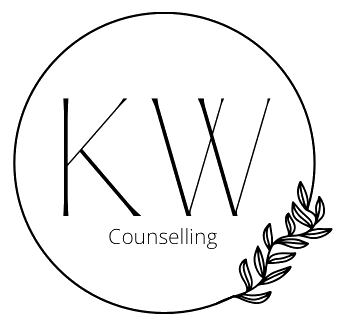Burnout is not a new phenomenon, having first been identified in 1974,1, but many are now referring to it as an epidemic.2 The COVID-19 pandemic further highlighted the profound effects burnout could have on essential workers such as doctors, nurses, teachers, and first responders.
As more people become aware of burnout and its effects, we should get better at identifying and treating it. But would you recognize the early signs of burnout in yourself soon enough to prevent it?
In this article, we will review the signs of burnout and talk about the early symptoms you can watch out for. Read on to learn how to make sure burnout doesn’t take you out.
What Is Burnout?
Burnout is generally defined as a work-related psychological state that has three dimensions:3
• Physical and mental exhaustion or fatigue
• Detachment or disengagement from work, a loss of meaning or purpose, and possibly cynicism about work
• Feeling ineffective at work or professionally incompetent
The symptoms of burnout relate to these dimensions; people with burnout might experience:
• Persistent low mood
• Inability to deal with personal or professional problems
• Annoyance or frustration with coworkers
• Emotional numbing
• Feelings of self-doubt or failure
• Physical symptoms such as gastrointestinal issues, loss of appetite, sleep disturbances, muscle tension, muscle aches and joint pain.
What Job Characteristics Increase the Risk of Burnout?
One way to recognize early signs of burnout is to be aware of how your job might increase your risk. Here are some aspects of jobs that make burnout more likely to occur:
Overwork
Time pressure or having too much work for the available time are risk factors for burnout. Overwork can include having a heavy workload, working long hours, or having more than one job.
Role Conflict or Role Ambiguity
Role conflict happens when there are conflicting demands in a job. For example, many primary care physicians in Ontario are currently overwhelmed with the amount of paperwork they are required to do, which conflicts with their primary responsibility of caring for patients.
Role ambiguity results when the requirements of the job are not made clear. For example, if you are hired as a writer for a large company, but you’re never sure who you report to, how your performance will be evaluated, or what type of authority you have, role ambiguity is a likely outcome.
Low Control
The inability to control the pace of your work and which tasks you will do makes burnout more likely. Assembly-line work and call centre jobs are good examples of this occupational characteristic. You might also lack control over certain aspects of the job environment, such as your workplace culture. Women who work in traditionally male roles, for example, may lack control over workplace harassment and misogyny.
Work in Human Services or Education
Jobs in human services and education have been found to carry a higher risk of burnout. However, these are the jobs most widely studied by burnout researchers, which could mean that burnout in other sectors has yet to be recognized.
What are the Early Signs of Burnout?
Recognizing the early signs is key to preventing a full-blown case of burnout. The symptoms of burnout can creep up on you, so it’s a good idea to follow up on the below, especially when your work is particularly stressful:
• Fatigue that is not improved with rest. This is a sign that something more serious is happening.
• Unexplained mood swings or a persistent low mood.
• Loss of enthusiasm for your job.
• Calling in sick more often than necessary or experiencing dread when preparing for work.
• Feeling less capable of doing your job or losing confidence in your work-related abilities.
• Lower job productivity.
• Physical symptoms that are typically associated with stress, such as tension headaches, general aches and pains, sleep disturbances, and gastrointestinal issues.
These warning signs could be related to other psychological or physical conditions issues such as depression, clinical anxiety, chronic fatigue syndrome, or a thyroid disorder; be sure to track these symptoms and discuss them with your doctor if they persist.
Dealing with Early Signs of Burnout
If you think you might be headed toward burnout, take steps before it overwhelms you. Here are some tactics for dealing with burnout in its early stages:
Acknowledge Your Condition
It can be difficult to admit to yourself that you are on the verge of burnout; people often see it as a personal failing rather than a consequence of overwork and lack of resources. However, acknowledging what is happening is the first step to improving your condition and preventing a full-blown case of burnout.
Make Changes to Your Work
Talk to your boss or HR about making changes to your work to decrease your workload, shift some deadlines, or adjust your responsibilities. If this is not possible, consider looking for a job with demands that feel more reasonable for you.
Engage with Your Coworkers
Burnout often causes people to withdraw socially. They may confine themselves to their office or cubicle and may avoid interacting with coworkers unless they have to. If that sounds like you, make it a point to chat with your work colleagues, join them for lunch, or participate in social activities outside of work.
Exercise
This may sound counterintuitive when you’re already dealing with fatigue, but exercise can actually improve energy and focus. You don’t have to take up marathon running or a serious training program; even small amounts of exercise will help! Try walking part of the way to work or doing some gentle yoga in the evenings.
Practice Good Sleep Hygiene
Restful sleep will restore you and help you deal with the challenges you are facing. Practicing good sleep hygiene helps people sleep more soundly. Use these tips for a good night’s rest:
• Limit naps during the day.
• Avoid screen time (including using your smartphone) for one hour before bedtime.
• Try to go to bed at the same time every night.
• Establish a relaxing bedtime routine (e.g., reading a good book, taking a warm bath, using a pillow spray infused with lavender) and keep your bedroom cool, quiet, and dark.
• Limit caffeine and alcohol close to bedtime.
• Exercise earlier in the day rather than in the late evening.
Talk to a Therapist or Counsellor
Discussing your condition with a mental health professional is never a bad idea. Here’s how it can help you deal with burnout:
Identifying and Understanding Your Burnout
A counsellor can be instrumental in assessing your symptoms and helping you figure out if burnout is what you’re dealing with. If you are suffering from depression, anxiety, or another condition, your counsellor can direct you to the right treatment options.
Developing Coping Strategies
A counsellor can help you find ways to cope with burnout, such as mindfulness, boundary-setting, time management, and relaxation techniques. They can also show you how to identify and address negative thought patterns that can exacerbate depression, such as perfectionism, self-criticism, or negative thoughts about your professional abilities.
Improving Self-Care Practices
Self-care can fall by the wayside when you’re burned out. A counsellor can help you find self-care practices that work for you and fit into your daily schedule. They can also hold you accountable for maintaining your self-care.
Providing Emotional Support
Externalizing your feelings can go a long way toward improving your psychological state. Meeting with a counsellor gives you a non-judgmental space where you can share your feelings, fears, and frustrations related to burnout. Therapists offer empathetic listening, validation, and emotional support, which can be comforting and will also open you up to discuss your deeper feelings.
If you want to try counselling to help you with job burnout, the team at Kari Walton Counselling is ready to help. We offer a range of treatment options, including cognitive-behavioural therapy, dialectical behaviour therapy, hypnotherapy, group therapy, and family therapy, to assist you with the early signs of burnout or any other mental health concern you may be experiencing.
Contact us today to make an appointment. Let’s talk about how we can help you avoid burnout and live your best life!
________________________________________
References
1. Journal of Social Issues: Staff burn‐out. https://spssi.onlinelibrary.wiley.com/doi/10.1111/j.1540-4560.1974.tb00706.x doi:
2. Harvard Business Review: Book Review of “The Burnout Epidemic: The Rise of Chronic Stress and How We Can Fix It” https://store.hbr.org/product/the-burnout-epidemic-the-rise-of-chronic-stress-and-how-we-can-fix-it/10438
3. Annual Review of Psychology: Job Burnout. https://www.annualreviews.org/content/journals/10.1146/annurev.psych.52.1.397

